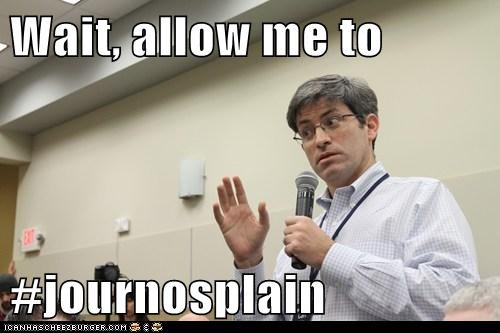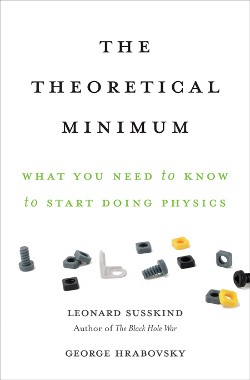On Twitter and blogs, we’re having another round of complaints about sensationalism and hype in science stories– Matthew Francis and Gabrielle Rabinowitz are the latest to cross my social media feeds. I’ve also seen some stories recently (that I’m too lazy to dig up) complaining about the latest Higgs Boson stuff, and I’m sure if… Continue reading The Problems of Science Media Are Not Unique
Month: March 2013
In Which I Struggle With Popular Music
The kids are off at Grandma and Grandpa’s, so Kate and I went out for a nice dinner Thursday night, and I found myself with a bit of time to blog… but no particular substantive ideas. The whole “publishers behaving badly” theme of last week seems to have run its course, between Random House re-thinking… Continue reading In Which I Struggle With Popular Music
Uncertain Principles on Twitter
What with all the angst lately over the impending death of Google Reader, I finally got over my inertia and am testing out the WordPress auto-tweet feature, because that’s apparently how the kids get their blog feeds these days. I sort of hate Twitter feeds that are nothing but blog post links, though, so I’ve… Continue reading Uncertain Principles on Twitter
Science Communication: The Audience Exists
In the twelve years I’ve been at Union, there are only two times I’ve tried to go to an evening speaker and been turned away. Once was 4-5 years ago, when Maya Angelou spoke on campus, the second time was last night, when Bill Nye the Science Guy spoke. I managed to make it to… Continue reading Science Communication: The Audience Exists
Science Kids, Fictitious Forces, and Frictionless Surfaces
SteelyKid has started to demand Sid the Science Kid videos, which of course we are implacably opposed to around here. One of the recent episodes available online was “Slide to the Side,” talking about friction. While this partakes a bit of the Feynman “Energy makes it go” problem, it was generally pretty good, and prompted… Continue reading Science Kids, Fictitious Forces, and Frictionless Surfaces
Long-Overdue Kid Blogging
WordPress’s upload is broken, so here’s a link to the photo: SteelyKid and The Pip. February was… not a good month, in a lot of ways. Let’s leave it at that. One of the unfortunate consequences of this was that I went just about the entire month without even taking any pictures of the kids,… Continue reading Long-Overdue Kid Blogging
Asking Questions and the “Finkbeiner Test”
There was a lot of re-sharing yesterday of an article about the “Finkbeiner Test” to be applied to profiles of women scientists. This is analogous to the “Bechdel Test” in pop culture, which asks “Do two women talk to each other about something other than a man?”, only because we’re scientists, it’s more complicated, hitting… Continue reading Asking Questions and the “Finkbeiner Test”
Science In Different Voices
One of the things that’s been rattling around in my head since ScienceOnline back in January is the need for a greater diversity of voices in science communication generally. I don’t mean diversity in the sense of racial and gender make-up of the people doing the communication, though that would be nice, I mean a… Continue reading Science In Different Voices
Be Your Boring Self
In rapid succession yesterday, Twitter threw me two how-to-behave-online links that kind of rubbed me the wrong way. The first was a widely re-shared essay titled You Are Boring: You listen to the same five podcasts and read the same seven blogs as all your pals. You stay up late on Twitter making hashtagged jokes… Continue reading Be Your Boring Self
The Theoretical Minimum by Leonard Susskind and George Hrabovsky
This is the physics book that’s generating the most buzz just at the moment, by noted string theorist Leonard Susskind and George Hrabovsky, based on a general-audience course Susskind’s been running for years. It’s doing very well, with an Amazon rank in the 300’s, which is kind of remarkable for a book with this many… Continue reading The Theoretical Minimum by Leonard Susskind and George Hrabovsky




